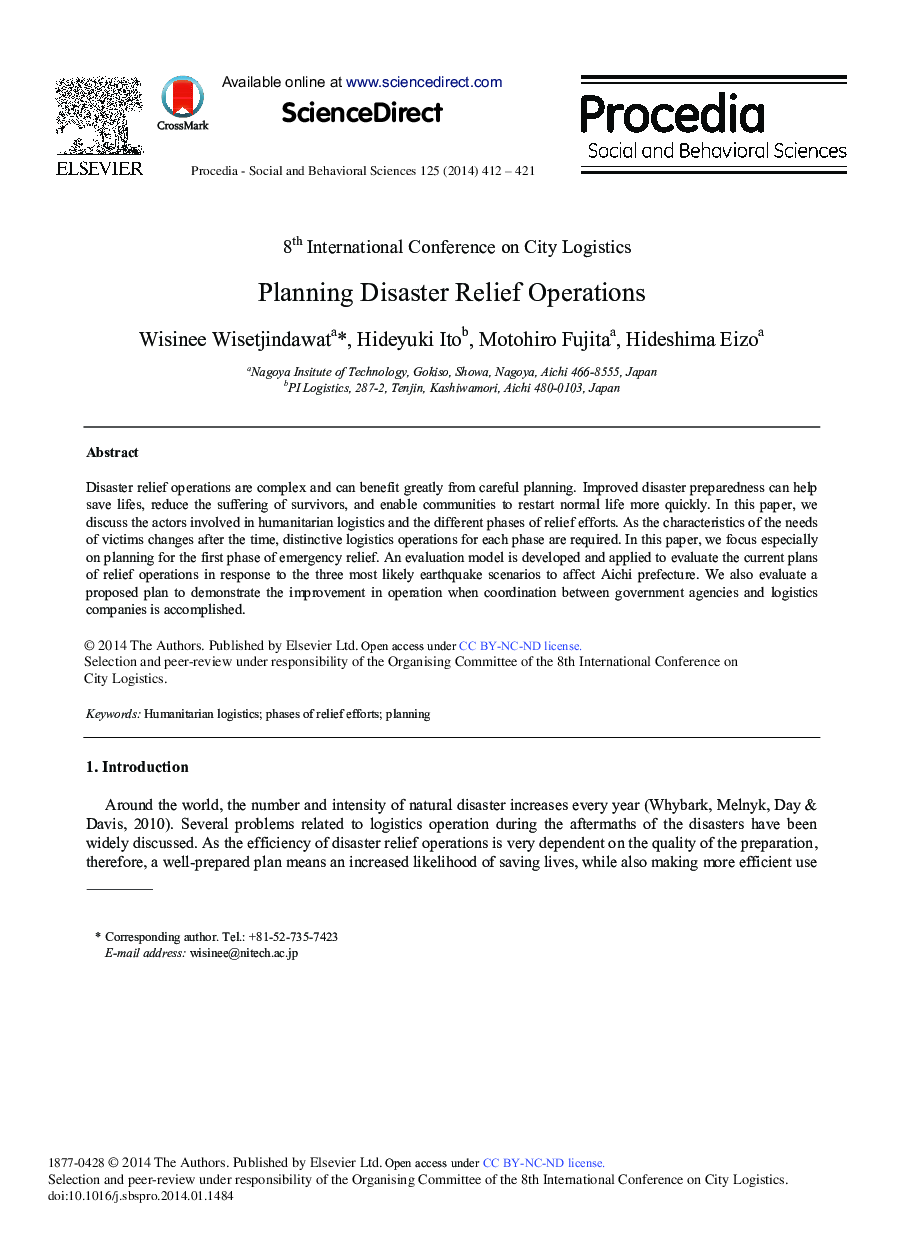| Article ID | Journal | Published Year | Pages | File Type |
|---|---|---|---|---|
| 1114004 | Procedia - Social and Behavioral Sciences | 2014 | 10 Pages |
Disaster relief operations are complex and can benefit greatly from careful planning. Improved disaster preparedness can help save lifes, reduce the suffering of survivors, and enable communities to restart normal life more quickly. In this paper, we discuss the actors involved in humanitarian logistics and the different phases of relief efforts. As the characteristics of the needs of victims changes after the time, distinctive logistics operations for each phase are required. In this paper, we focus especially on planning for the first phase of emergency relief. An evaluation model is developed and applied to evaluate the current plans of relief operations in response to the three most likely earthquake scenarios to affect Aichi prefecture. We also evaluate a proposed plan to demonstrate the improvement in operation when coordination between government agencies and logistics companies is accomplished.
